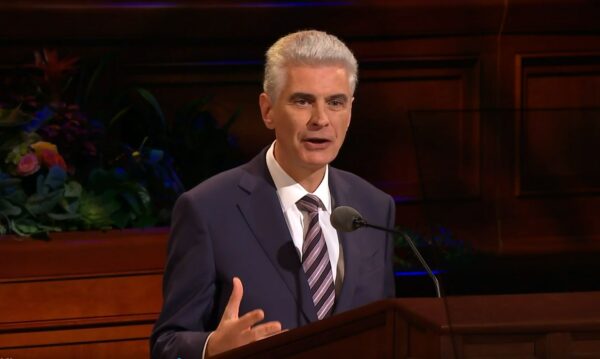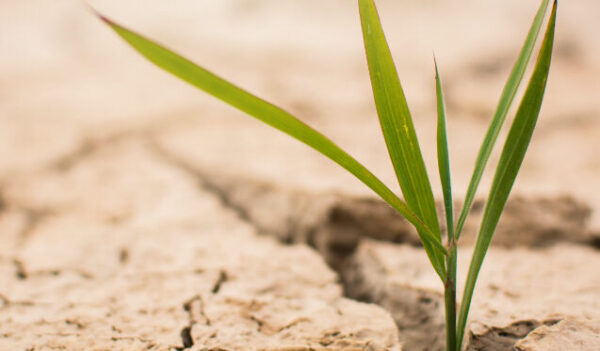Members of the Church of Jesus Christ of Latter-day Saints often consider its teachings for many of their guiding principles in politics. Conservation is one of those areas.
The Church and the environment intersect in many ways. A recent High Country News article covered the Church’s role in pushing conservation. It would have been a good article, except the sources were sometimes unreliable and its portrayal of the Church was not very holistic.
The article then lamented that the Church was unwilling to offer an interview about an earlier water conservation statement or about the Great Salt Lake.
But there is so much doctrine that is already available on the topic! If the author had been willing to dig more deeply into that doctrine, they might have found a more complete picture. Instead they ended up with an article that, from the perspective of Church members, looked quite lazy and flat. That is saying something for a Church that is so often criticized.
Whatever your stance on environmental issues, there is a better way to go about it.
Conservation in Scripture
The LDS scriptures support taking care of the environment. They teach that the earth was created by God and people have a responsibility to respect it and use its resources wisely.
The Doctrine and Covenants say, “And it pleaseth God that he hath given all these things unto man; for unto this end were they made to be used, with judgment, not to excess, neither by extortion.”
According to LDS doctrine, God gave these things to man, and man would be stewards over them. The people’s job would then be to use earth’s resources to beautify the earth and take care of the poor. This came with strict council to use only what is necessary, avoid waste, and not take from others.
The word, “stewardship” is first mentioned in the context of the earth in Doctrine and Covenants section 104. Here God describes “every man” as a “steward over earthly blessings.” But the concept of stewardship goes way back to Jesus’ teachings in the New Testament.
HCN is right when they write that the Church’s scriptures are very supportive of taking care of the earth. However, the article seemed to have missed the main point: our responsibility toward God and man as stewards.
Conservation in Modern Teachings
Instead, its argument was based on uninformed statements from critics. “They believe that Jesus will come soon and renew the Earth,” a nonmember critic told HCN, “so trying to fix the environment is unnecessary.” If some people believe that, it did not come from what Church leaders have said on this issue.

Presiding Bishop Gérald Caussé clarified what it means to be good stewards in his most recent church-wide general conference address.
He taught, “As stewards of God’s creations, we have a duty to honor and care for them.”
“There are many things that we can do — collectively and individually — to be good stewards,” he said. “Considering our individual circumstances, each of us can use the bountiful resources of the earth more reverently and prudently. We can support community efforts to care for the earth. We can adopt personal lifestyles and behaviors that respect God’s creations and make our own living spaces tidier, more beautiful, and more inspirational.”
Caussé’s counsel supports everything learned in scripture. It also teaches an extra emphasis on human beings as God’s crowning creation.
“Our stewardship over God’s creations,” Caussé added, “also includes, at its pinnacle, a sacred duty to love, respect, and care for all human beings with whom we share the earth.”
This puts humans in a special position of taking care of their God’s creations, but also taking care of one another. Many members feel this connection to the earth as they work to beautify it and take care of the humans they share Earth with.
It’s not an “us against them” sort of thing as the HCN article seemed to indicate, nor does the Church teach that it is unnecessary for us to take care of the earth.
The Grand Scheme of Conservation in the Church
In fact, in the grand scheme of conservation in the Church of Jesus Christ of Latter-day Saints, conserving the earth is about honoring God and sharing with and caring for our fellow man.
As for the efforts of the Church and its members toward conserving the earth, the Church has a few suggestions:
“Check with your local utility company, local community groups, or on the internet to find suggestions to conserve energy and to recycle,” the Church writes in its gospel topics. “Consider starting a community garden. Support local civic groups that promote stewardship and conservation. Be an involved citizen in government. Be informed, respect the views of others, and treat everyone with civility.”
In a perfect world, Church members in Garfield, Piute and Wayne counties would work to make the best use of water especially in times of drought, be informed on how to take care of the local environment, and avoid waste of any kind. And I believe that in large part they do these things, even if they have different methods than other environmentalists.
The Church of Jesus Christ of Latter-day Saints does support conservation. But if HCN expects the Church to become a divisive political activist in the cause of environmentalism, that is just not going to happen.
– by Abbie Call
Feature image courtesy Adobe Stock.

Abbie Call – Cannonville/Kirksville, Missouri
Abbie Call is a journalist and editor at The Byway. She graduated in 2022 with a bachelor’s degree in editing and publishing from Brigham Young University. Her favorite topics to write about include anything local, Utah’s megadrought, and mental health and meaning in life. In her free time, she enjoys reading, hanging out with family, quilting and hiking.
Find Abbie on Threads @abbieb.call or contact her at abbiecall27@gmail.com.

